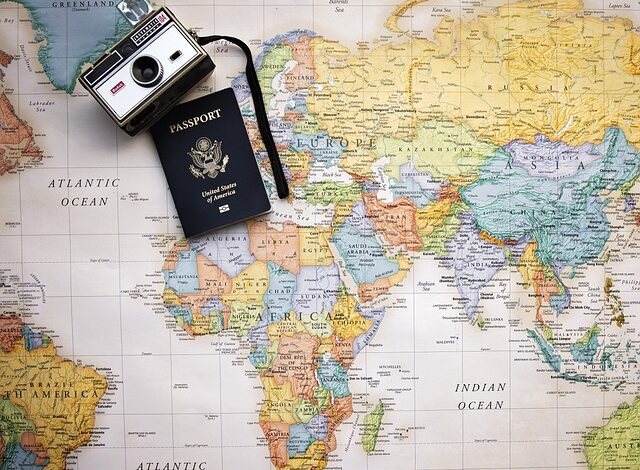How to Use Your Health Insurance When Traveling Abroad as a Luxembourg Resident

Traveling abroad is an exciting adventure, whether it’s for leisure, business, or family visits. However, navigating healthcare systems in foreign countries can be daunting, especially when you’re accustomed to the robust healthcare system in Luxembourg. As a resident of Luxembourg, understanding how your health insurance works while traveling internationally is crucial to ensure peace of mind and access to necessary medical care.
In this comprehensive guide, we’ll walk you through everything you need to know about using your health insurance abroad, including coverage details, practical tips, and steps to take before and during your trip.
Understanding Luxembourg’s Healthcare System
Luxembourg boasts one of Europe’s most advanced healthcare systems, offering universal coverage to its residents. The country operates under a mixed public-private model, where statutory health insurance (Caisse Nationale de Santé, or CNS) covers the majority of medical expenses, supplemented by optional private insurance for additional services.
As a Luxembourg resident, your health insurance typically includes provisions for emergency care when traveling within the European Union (EU), European Economic Area (EEA), and Switzerland. For travel outside these regions, however, coverage may vary, requiring additional preparation.
Key Documents to Carry While Traveling
Before embarking on your journey, make sure you have the following essential documents:
- European Health Insurance Card (EHIC)
The EHIC grants you access to state-provided healthcare at reduced costs—or sometimes free of charge—in EU/EEA countries and Switzerland. It serves as proof that you are entitled to medically necessary treatments under the same conditions and prices as locals.- How to Obtain an EHIC : Apply online through the CNS website or visit their office in person. Each member of your family needs their own card.
- Validity Period : Check the expiration date before traveling; renewals can take time.
- Private Health Insurance Information
If you hold supplementary private health insurance, carry your policy details, including contact numbers for emergencies and information about international coverage. - Passport and Identification
Always keep copies of your passport and ID handy, as some hospitals abroad may require identification before providing treatment. - Emergency Contact List
Include local emergency numbers, your insurer’s hotline, and contacts for family members or friends.
Coverage Within the EU/EEA and Switzerland
When traveling within the EU/EEA and Switzerland, your EHIC ensures access to medically necessary treatments. Here’s what you should know:
What Is Covered?
- Emergency medical care (e.g., accidents, sudden illnesses).
- Maternity care if unforeseen complications arise during pregnancy.
- Chronic condition management, provided it aligns with routine care.
What Isn’t Covered?
- Non-urgent procedures or elective surgeries.
- Repatriation costs (returning to Luxembourg for medical reasons).
- Private healthcare facilities unless explicitly stated in your policy.
Tips for Using Your EHIC Abroad
- Present your EHIC upon admission to a hospital or clinic.
- Confirm that the facility accepts EHIC payments to avoid unexpected bills.
- Keep all receipts and documentation related to your treatment for reimbursement purposes.
Traveling Outside the EU/EEA and Switzerland
For destinations beyond the EU/EEA and Switzerland, your CNS coverage generally does not apply. To safeguard yourself against high medical costs, consider the following options:
1. Purchase Travel Health Insurance
Supplemental travel health insurance is highly recommended for trips outside the EU/EEA. Look for policies that cover:
- Emergency medical evacuation and repatriation.
- Hospital stays and outpatient care.
- Pre-existing conditions, if applicable.
Compare plans carefully, paying attention to exclusions such as adventure sports or pre-planned treatments.
2. Verify Private Insurance Coverage
If you already have private health insurance in Luxembourg, check whether it extends to international travel. Some policies offer global coverage or allow temporary extensions for specific trips.
3. Understand Local Healthcare Systems
Research the healthcare infrastructure of your destination beforehand. In some countries, private hospitals may provide faster service but at higher costs. Knowing where to seek help can save valuable time in emergencies.
Steps to Take Before You Travel
Proper planning minimizes stress and ensures seamless access to healthcare abroad. Follow these steps:
- Consult Your Doctor
Schedule a pre-travel consultation to discuss vaccinations, medications, and any special precautions based on your destination. - Pack a Medical Kit
Include prescription medications, first-aid supplies, and copies of prescriptions. Ensure medications are labeled clearly and comply with local regulations. - Register with the Ministry of Foreign Affairs
Sign up for the “SOS Worldwide” program offered by Luxembourg’s Ministry of Foreign Affairs. This service provides assistance in case of emergencies abroad. - Download Useful Apps
Consider downloading apps like the EHIC app or those provided by your insurer for quick access to important information.
What to Do in Case of an Emergency
Despite careful planning, emergencies can still occur. Here’s how to handle them effectively:
- Seek Immediate Care
Visit the nearest hospital or call local emergency services. Present your EHIC or travel insurance card as soon as possible. - Contact Your Insurer
Notify your insurer promptly to initiate the claims process. They may also assist with coordinating care or arranging repatriation if needed. - Document Everything
Save all invoices, medical reports, and correspondence. These documents will be essential for filing reimbursement claims. - Stay Calm and Communicate Clearly
Language barriers can complicate matters. Use translation apps or ask for interpreters to explain your situation accurately.
Common Challenges and Solutions
Challenge 1: High Out-of-Pocket Costs
Even with an EHIC or travel insurance, upfront payments may be required. Carry a credit card with sufficient limits to cover initial expenses.
Challenge 2: Limited Access to English-Speaking Doctors
Research English-speaking clinics or hospitals in advance. Alternatively, consider hiring a translator for complex consultations.
Challenge 3: Lost or Stolen Documents
Keep digital copies of your EHIC, passport, and insurance details stored securely online. Share them with a trusted friend or family member back home.


